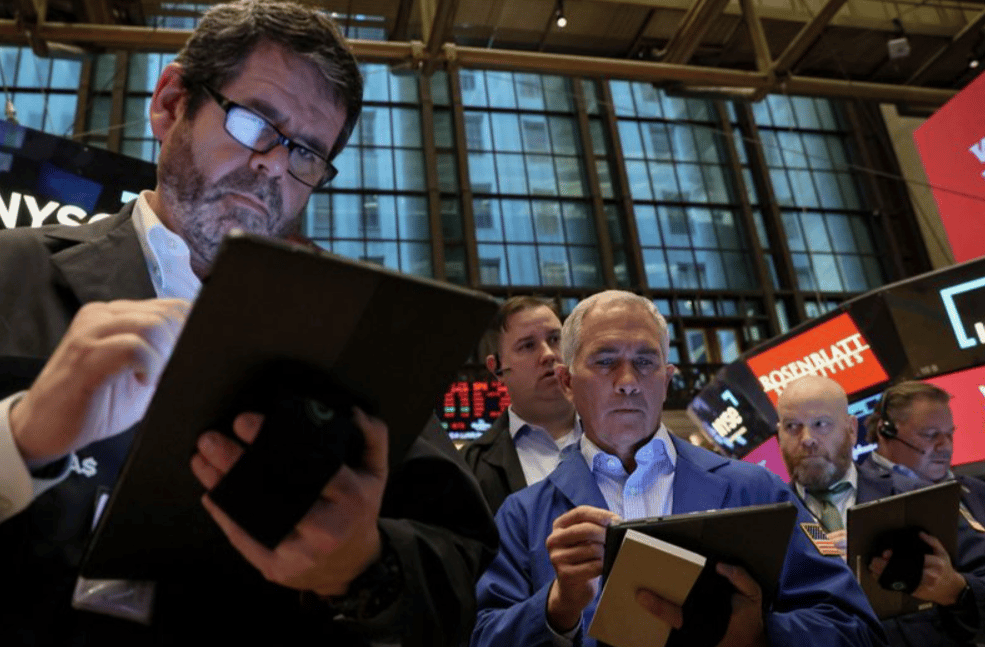Global Stock Markets Reach Record Highs Amid Mixed US Economic Data and Declining Treasury Yields
On Wednesday, the financial markets displayed a lack of cohesive direction as global equities surged to record highs, while Wall Street closed with mixed results. Simultaneously, yields on US Treasury bonds declined, reflecting investor caution. These developments unfolded against a backdrop of contradictory US economic data and ongoing uncertainty surrounding global trade negotiations.
This scenario underscores the complex interplay between inflationary concerns driven by tariff policies and prevailing global disinflationary trends shaping current market dynamics.
Dissecting the Market Movements and Underlying Economic Forces
The global stock market rally to historic peaks signals investor optimism fueled by factors such as easing inflation expectations and supportive monetary policies. However, the mixed close on Wall Street reveals underlying caution, with market participants weighing conflicting economic signals.
The US Treasury yield decline suggests a flight to safety amid uncertainties, affecting the cost of capital and influencing equity valuations. This yield drop often correlates with lower borrowing costs, encouraging investment but also reflecting concerns over economic growth.
Trade negotiations remain a significant source of ambiguity. The absence of clarity regarding tariffs and trade agreements adds a layer of risk that tempers market enthusiasm. Notably, tariffs expected to impact prices in late 2025 and beyond have raised inflationary fears, yet current global disinflationary forces appear to dominate, mitigating these inflation pressures.

Brief Facts
Global stock markets hit record highs on Wednesday.
Wall Street ended the session with mixed performance.
US Treasury yields declined, indicating investor caution.
Contradictory economic data emerged from the US.
Uncertainty persists in global trade negotiations.
Inflation concerns exist due to future tariff expectations.
Disinflationary forces currently outweigh inflation pressures globally.
Market Reactions and Expert Commentary on Inflation and Trade Dynamics
Market analysts note that the ongoing tug-of-war between inflation and disinflation is central to investor decision-making. While tariffs threaten to push prices higher, recent data suggest that structural and cyclical factors are contributing to a broader disinflation trend worldwide.
Investor sentiment remains cautious but optimistic, as the bond market’s yield decline and the equity markets’ gains illustrate divergent responses to economic conditions. This dichotomy reflects uncertainty about the sustainability of growth and inflation control.
Experts emphasize that the resolution of trade negotiations will be pivotal in setting the medium-term economic outlook. Clarity in trade policy could bolster confidence and stabilize markets, while prolonged disputes may exacerbate volatility.

Key Points
Global equities reach record highs amid economic uncertainties.
Wall Street’s mixed close reflects investor caution.
Declining US Treasury yields indicate risk aversion and impact on cost of capital.
Conflicting US economic data contribute to market ambiguity.
Trade negotiations remain unresolved, sustaining market risk.
Inflation fears from tariffs contrast with prevailing disinflationary trends.
Market outlook depends on future trade policy clarity and inflation trajectory.
Summary and Significance of Current Market and Economic Conditions
The simultaneous rise in global stock markets and decline in US Treasury yields against a backdrop of mixed economic data and trade uncertainty highlights the nuanced state of the global financial landscape. While inflationary risks persist, particularly due to tariffs scheduled for late 2025 and beyond, dominant disinflationary forces are currently moderating inflationary pressures.
This delicate balance underscores the importance of monitoring trade negotiations and economic indicators closely, as these factors will significantly influence investor sentiment and market trajectories in the near term.















Comments